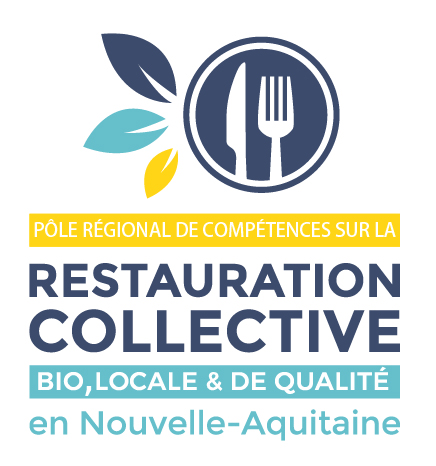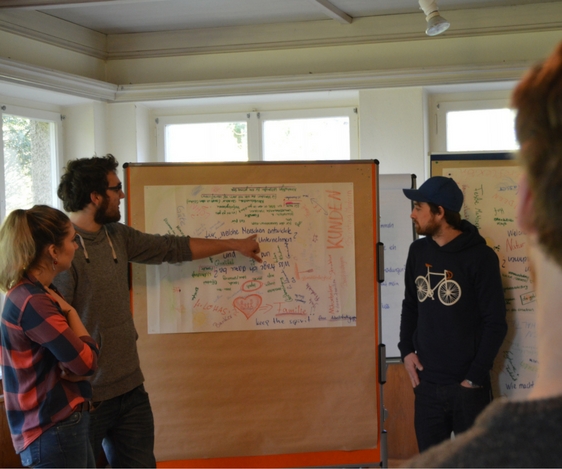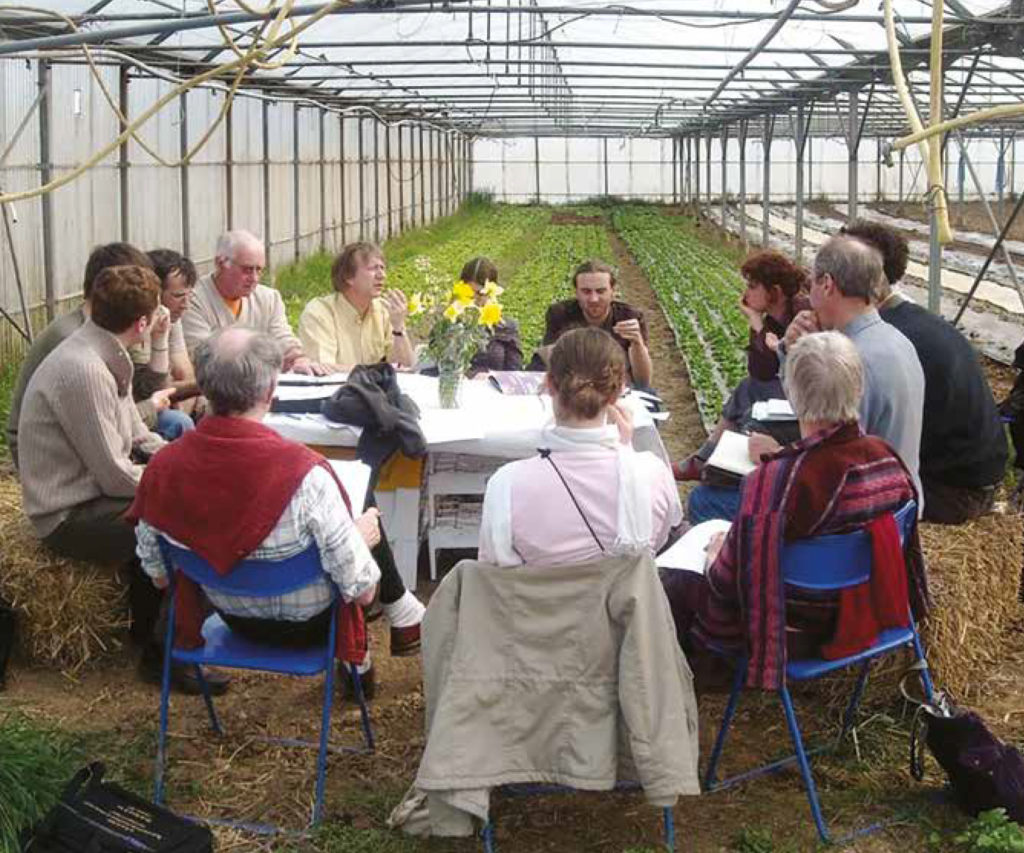Organic on every table
Leading by example

ORGANIC CONVERSION AND GREEN PUBLIC PROCUREMENT IN COPENHAGEN’S PUBLIC KITCHENS
USING GREEN PROCUREMENT TO FOSTER SUSTAINABLE DIETS
WHAT:
A combination of forward-looking green procurement policy and a determination to transform food culture are the recipe for success when it comes to increasing organic in public institutions. As of 2017, the share of organic ingredients in meals in public canteens in Copenhagen has reached 89%, and this transition has reshaped the public food system as well as the meals that are served to the citizens of Copenhagen.WHERE:
Copenhagen, DenmarkWHO & HOW:
Behind this success is a national effort from Organic Denmark, which achieved a national government goal of 60% organic in all public canteens, as well as winning public financing for conversion and education in public kitchens, and an intensive collaboration among organic farmers, food companies and wholesalers in Organic Denmark to expand organic supply to public canteens.
The Municipality of Copenhagen has pursued the organic agenda since 2001, and has the explicit goal of reaching 90% organic throughout the procurement of all the 900 kitchens that produce meals across the city.
The 90% organic strategy has been a dual effort of both training and up-skilling kitchen staff and simultaneously restructuring the methods of procurement, to ensure supply of quality organic ingredients. The organic conversion of all approximately 900 kitchens across the city has been undertaken both by departments within the municipality and with the help of various consultants and trainers. The main idea behind the strategy in the kitchens is to train kitchen staff in cooking techniques, so that they are able to plan their menus sustainably and cook food from scratch, as opposed to using processed food and semi fabricates, and thus can afford to buy more expensive organic food. Other techniques that are taught, are the increased use of seasonal vegetables, reduced use of meat, baking, preserving, fermenting and a general reduction of food waste, all are aspects that serve to maximise the value of public food spending budgets, at the same time resulting in more nutritious, climate friendly and appealing meals. No kitchens have been awarded an increased budget in order to achieve the goal of 90% organic, the task has been to convert within existing budgets.
In recent years, the municipality has put much effort into ensuring that the organic transition in the kitchens will be supported by quality, organic procurement and tenders that encourage the market to develop the organic and sustainable parts of their product ranges. As a direct result, recent years have seen a professionalisation of the organic supply lines into the canteens, schools, hospitals and nursing homes, where it is now possible to get a wide range of organic products in catering sizes, freshly butchered organic meat in a wide variety of cuts, and a wide diversity in the offering of seasonal fruits and vegetables. For instance, none of the wholesalers operating on national level in Denmark, were offering fresh organic meat, only a small assortment of frozen cuts was available, until the municipality of Copenhagen published a tender in 2012 specifying a wide assortment of fresh, organic meat, that then shortly became available through several of the wholesalers. The market for organic and sustainable food in out of home catering in Denmark has developed much slower than the retail market, but the procurement officers of Copenhagen have been able to create a clear and concise demand and communicate it to the contenders in the marketplace, in an audible manner.
MORE INFO
The Municipality of Copenhagen
Photo credit: Brian Berg

Bio Sud-Ouest France
Regional brand
WHAT:
Launched in 2013, together with the Region Midi-Pyrénées, the brand ‘Bio Sud Ouest’ aims at promoting a local production or supply, supporting regional operators, and proposing a clear identification of local organic products thanks to its label.WHERE:
Nouvelle-Aquitaine region, FranceWHO & HOW:
The brand Bio Sud-Ouest France was created by the former regional councils of Aquitaine and Midi-Pyrénées, with a grant for the two interprofessional association to use it. The European organic regulation certifies the production and process of the products. Bio Sud-Ouest France guarantees the regional origin of the products under the Brand Bio Sud Ouest France. The objectives of the brand are the promotion of a local production and supply, the support to regional organic operators, and a clear identification of organic and local products. All organic certified producers and processors based in Nouvelle-Aquitaine and ex-Midi-Pyrénées can use the brand, if they meet the specifications:- the product comes from an organic production and is certified by a certifying body,
- the main raw material of the products is produced in the territory of the Nouvelle-Aquitaine and/or ex- Midi-Pyrénées regions,
- it is produced and processed in the territory of the Nouvelle-Aquitaine and/or ex- Midi-Pyrénées regions.
- all the ingredients used are totally traceable, justified by origin certificates from the production step.
Nowadays, there are 556 certified products of 35 companies. It concerns raw products like fruits, vegetables and cereals, and processed food like yogurts, jam, juices, flours, honey, etc.
In 2017, the board of INTERBIO NA decided to expand the brand to the entire Nouvelle-Aquitaine Region, with the support of the Regional Council.
MORE INFO
Jérôme Cinel, INTERBIO Nouvelle-Aquitaine, Bio Sud Ouest France
Email: j.cinel@interbionouvelleaquitaine.com, Tel:+33 5 56 79 28 52

A REGIONAL CLUSTER FOR PUBLIC CATERING
Introducing organic, local and quality food products in the Nouvelle-Aquitaine region
WHAT:
Created in 2012 to answer the needs for support to introduction of organic products in public catering, the cluster is a tool for developing and organising the reflection and action on local and quality food for catering services in Nouvelle-Aquitaine. Gathering several regional organisations, its missions are to support public catering restaurants, structure the local and organic value chains to develop a suitable supply and to promote organic and local products.WHERE:
Nouvelle-Aquitaine region, FranceWHO & HOW:
The cluster defines regional actions to introduce high quality food products in public catering. Its main missions are the support to local authorities that want to develop the introduction of labelled organic, local and origin certification products (with PGI and PDO labels); the organisation of regional value chains to develop a suitable offer; and the promotion of the organic and local sector and its products for public catering.The support and follow-up of the public catering restaurants is done by assisting local authorities that aim to improve food quality by introducing organic products in their catering services and by helping them drafting public procurement contracts.
Besides assisting local authorities, the cluster also works on the organisation of the value chain by organising and facilitating the public catering commission, setting up a watch on call for tenders’ releases, supporting platforms development, organising targeted trainings related to the members’ needs and offering technical support to the members in the elaboration of their commercial strategies towards public catering. Moreover, the promotion of the organic sector is part of the actions, aiming at raising awareness among various audiences, including but not limited to the public, professionals, and policy makers.
The cluster has created an online platform to facilitate exchanges between public catering professionals and regional food and farming stakeholders. It is a clear and efficient way for all stakeholders who want to set out projects to improve their food offer in their public catering services. The platform contains a toolbox, specialized information, and professional contacts, as well as awareness rising documents for different audiences.
MORE INFO
Jérôme Cinel, INTERBIO Nouvelle-Aquitaine, Bio Sud Ouest France
Email: j.cinel@interbionouvelleaquitaine.com, Tel:+33 5 56 79 28 52

PRODUCING VEGETABLES WITH HIGH VALUE AND ENVIRONMENT PROTECTION: ‘MROWISKO’
Organic Demonstration Farm: innovative vegetable production
WHAT:
Organic farm ‘Mrowisko’ specialises in organic vegetable production. The farm does not keep animals, but produces compost, vegetable broth and plant extracts. The effects are achieved mainly by properly constructed crop rotation, composting, organic fertilizers allowed by Fertilizer Institute in Puławy and manure purchased at organic farms. Proper composition of neighbouring plants protects the cultivation from pest and diseases.WHERE:
Lodzkie region, PolandWHO & HOW:
Starting the farm ‘Mrowisko’ in 2002 the owners kept in mind food production of high quality, beneficial for human’s health and improving fertility of soil. The vegetables production in ‘Mrowisko’ takes in consideration nature laws.The owners treat the farm as a living organism – providing natural protection from diseases and pests. An important principle is to preserve the biodiversity. The beginning of ‘Mrowisko’ was very difficult, but it did not discourage the owners and they persisted in their efforts. “When you work in the field of organic, you need to be patient and humble in regards of nature laws” – says Monika Mrowińska the owner of ‘Mrowisko’.
After gaining experience in the field of vegetable cultivation, they decided to disseminate their knowledge by organising visits in ‘Mrowisko’ for young generations. In 2017, they hosted over 700 children from primary schools and kindergartens. During the visits they presented, what the organic farming consists of. Everyone who purchases ‘Mrowisko’ products can visit the farm personally and see how they are grown. On the farm, tomatoes, paprika, butter head lettuce, iceberg lettuce under cover, radishes, cucumbers, aubergine, zucchini, pumpkin Hokkaido, carrot, beetroot, chive, dill, and string bean are grown.
So far, there was no funding stream involved. The goal of the owners is to be financially independent and maintain the farm by selling of what is grown.

SUPPORT PROGRAMME FOR YOUNG FARMERS & ENTERPREUNEURS TO BUILD ORGANIC FARM BUSINESS
ENSURING ECONOMIC VIABILITY OF FARMING
WHAT:
To support start-ups and farms in the organic sector, Demeter Academy and partners offer young farmers and entrepreneurs knowledge, a biodynamic network, free space, feedback and support for legal, economic and social aspects of running organic businesses. The program consists of five modules, each focusing on different aspects of funding a business.WHERE:
GermanyWHO & HOW:
The three initiative organisations Demeter-Akademie, Öko-Junglandwirte Network and Bioboden cooperative (represented through Simone Helmle, Clemens Gabriel and Uwe Greff), developed the framework of the project and also lead the individual courses. ogether with other educative initiatives and individual persons in the biodynamic sector we offer a series of 5 seminars for a closed and continuous group of 16 participants. The main aim is to offer guidance and space for mutual support in developing your own business plan, learning how to lead yourself and your enterprise and knowing what you need as a juridical and social secure base for your farm or business.Our main targets are young starting farmers who either set up new enterprises or are about to take over running organic farms. We also take participants from the farm related organic sector. The main impact of these seminars is to strengthen young starting entrepreneurs to set up or take over highly complex businesses as organic farms are today. Furthermore, the course is closing the gap between existing organic farming educations and the reality of being a farming entrepreneur, which is requesting a high level of self-reflection, self-leadership and the ability to gain knowledge.
Finally, the course will also be a possibility to practice and experience how to present an individual Business plan for to get the financial and social support needed.
There are many complex grown organic farms and enterprises in Germany, set up and continuously developed by a generation of pioneers. A new generation now has to take over these businesses or start up new ones, being able to compete within these grown structures. Therefore, we need to strengthen the new generation of organics to carry on the good work of the organic sector in Germany and to lift it up to a next level.
MORE INFO
Demeter-Akademie

PRESERVING LAND FOR LOCAL, AGROECOLOGICAL FARMING
ACQUIRING ACCESS TO LAND
WHAT:
Access to land through land trust schemesWHERE:
EuropeWHO & HOW:
In the light of competing land uses, increasing concentration in land ownership, rising land prices, and land abandonment, access to agricultural land is gaining importance in Europe. In many European countries farmer or community led initiatives have been developing to ensure organic farmers have access to land.The European Network for Access to Land uniting several such organisations from Belgium, Spain, Italy, France, UK, Lithuania, Germany and Romania has emerged to share experiences and practical ways of assisting farmers in accessing land and engaging in good land stewardship. In their national or local contexts, the members of the network focus either on acquiring land through crowdfunding, private investments and other financial tools; engaging with local authorities to bring them to support access to land; or making arrangements with land owners willing to give access to their land with conditions that are favourable to organic growers.
Although the scale of operations of organisations vary, they all make a valuable contribution to strengthening links between rural and urban areas and freeing land from the commodity market to be preserved through sustainable agroecological management powered by local communities. The Network aims at reconsidering land as a common good where citizens, farmers and public authorities collaborate.
MORE INFO
Access To Land

CO-OPERATIVE FARM FOR URBAN CONSUMERS IN FINLAND
CREATING LINKS WITH COMMUNITIES
WHAT:
The consumer-led community supported agriculture (CSA) Urban Co-operative Farm in Helsinki, Finland, is an organic farm, a place for learning and a platform for advocacy on sustainable food.WHERE:
FinlandWHO & HOW:
The CSA movement has been growing in Europe in recent years, with around 6,300 farms and one million consumers in 2015. While the CSA schemes vary, the overall principle is to share the risks and benefits of farming between farmers and consumers. In Finland, instead of reaching an agreement with an existing farm as many CSA schemes would do, the Urban Co-operative Farm food co-operative in Helsinki rents a field and employs professional growers, or ‘personal farmers’, who produce organic vegetables for the co-op from early summer to late autumn.To be part of the coop, consumers pay a membership fee and a yearly harvest fee. In addition, they spend up to 10 hours per year, for example working in the field or at a distribution point. The co-op has also made investments, such as a new tractor, with the help of loans from members. Co-op members have reported a change in diet toward eating more vegetables, being introduced to more unusual varieties of vegetables, and gaining an increased awareness of wider food system sustainability issues. The farm also serves as an educational space for children, school groups and culinary school students, and the co-op has piloted a 'solidarity share' model aimed at low-income consumers. The co-operative has received much media attention and has done significant advocacy work around sustainable food in Finland.
MORE INFO
Website in Finnish - Website in English
Photo credit: Eero Aho

STEPS TO ORGANIC
A voluntary programme for increasing the use of organics in restaurants
WHAT:
‘Steps to Organic’ is a voluntary programme for all private and public kitchens. Its purpose is to help increase the use of organic products as part of sustainable development. Consumers can also find restaurants that offer organic food on the programme’s website.WHERE:
Across FinlandWHO & HOW:
‘Steps to organic’ is a voluntary programme for all professional kitchens in Finland – both private and public. The programme helps to collect data about the development of the use of organic products and reinforces the chain of organic food production and marketing. The programme also offers information on food procurement and knowledge on how to apply sustainable development into kitchen functions.‘Steps to organic’ is a reliable model for increasing the use of organic ingredients in food services. By becoming part of the programme, restaurants get visibility and can communicate with customers about using organic products in a reliable way. All restaurants that joined the programme are visible on the programmes website, and a restaurants may also use programmes star logo.
The logic behind the programme’s stars consists of six steps. In the first step, a restaurant is using one significant foodstuff as organic. In the sixth step, conventional products are used only when an organic alternative in not available. In the steps between the first and the last, the restaurant is gradually increasing its use of organic products. A restaurant gets its first star when step two is achieved. The more stars a restaurant has, the more organic produce it uses.
Currently, more than 2,400 restaurants take part in the programme. Some difficulties are caused by the differences between the actors in the food services and catering businesses. These differences make it difficult to create criteria that are suitable for all actors. It seems that in food services the value and the competitive advantage of marketing the use of organic is still underestimated. Many actors in food services still need a lot of information on the benefits of organic farming.
The ‘Steps to organic’ programme is accessible over the Internet. Organisations that joined the programme pay an annual subscription, varying between 120-600 EUR and depending on how many meals are offered for year. New organisations pay a registration fee of 50 EUR. The Savo Consortium of Education maintains the programme.
MORE INFO
Anu Arolaakso, Savo Consortium for Education, Luomua Ravintola
Email: anu.arolaakso@sakky.fi
This best practice is part of the SME ORGANICS project.
Do you have an initiative that makes food & farming systems across Europe fair, environmentally conscious, healthy & caring?
Click here to submit your own initiative!